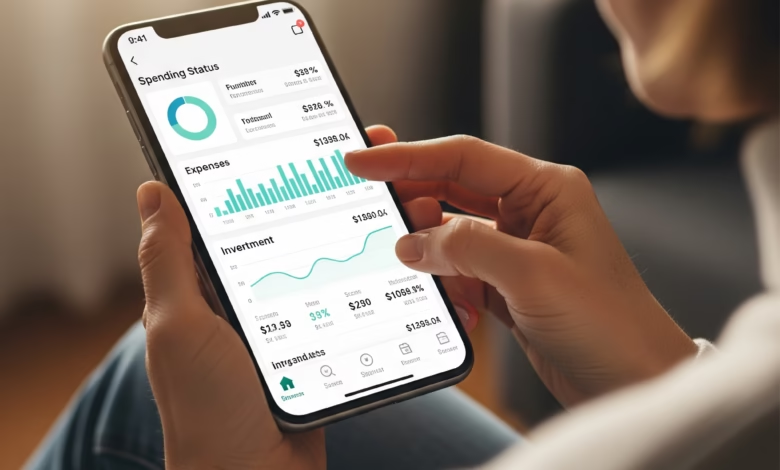Is it more worthwhile to save or invest money in 2025?
Find out with this guide which is more worthwhile, saving or investing your money

It’s a question as old as money itself: should you save your hard-earned cash or invest it? In 2025, with economic shifts and evolving financial landscapes, this decision is more crucial than ever. For many, “investing” sounds complicated, risky, or just for the wealthy. But the truth is, understanding the basics of both saving and investing can empower anyone to build a stronger financial future. Let’s break down which path might be best for your money right now.
Is Saving Money in 2025 the Smart Play?

Many people prioritize saving money, and for good reason. Building an emergency fund is often the first step towards financial stability. This fund acts as a safety net, protecting you from unexpected expenses like medical emergencies, job loss, or car repairs without having to go into debt.
Building an Emergency Fund in 2025: Your Financial Safety Net
An emergency fund should ideally cover 3 to 6 months of essential living expenses. In 2025, with potential economic uncertainties, having a robust emergency fund is not just smart, it’s essential. Think of it as a low-risk, high-reward “investment” in your peace of mind. Keeping this money in an easily accessible, liquid account like a high-yield savings account (HYSA) is crucial. While the returns on savings accounts might seem small compared to investments, their primary purpose is safety and accessibility, not aggressive growth.
Why Investing Money in 2025 Can Beat Inflation

While saving provides security, simply holding cash can actually lead to a loss in purchasing power over time due to inflation. Inflation is the rate at which the general level of prices for goods and services is rising, and subsequently, the purchasing power of currency is falling. If your money isn’t growing at least as fast as inflation, you’re effectively getting poorer. This is where investing comes in.
Inflation and Your Money: Understanding the Erosion of Savings
In 2025, monitoring inflation rates is key. If inflation is high, your savings held in traditional low-interest accounts will buy less in the future. Investing money aims to generate returns that outpace inflation, helping your wealth grow in real terms.
Beginner Investing in 2025: Simple Strategies for Long-Term Growth
You don’t need to be a financial wizard to start investing. For beginners, some of the most common and effective strategies include:
- ETFs (Exchange-Traded Funds): Diversifying Your Portfolio Easily: ETFs are baskets of various stocks, bonds, or other assets that trade on exchanges like regular stocks. They offer instant diversification, meaning you’re not putting all your eggs in one basket. This can reduce risk significantly compared to buying individual stocks.
- Low-Cost Index Funds: Riding the Market’s Overall Growth: Index funds are a type of mutual fund or ETF that aims to replicate the performance of a specific market index, like the S&P 500. They are known for their low fees and consistent long-term returns, as they simply track the market rather than trying to beat it.
- Robo-Advisors in 2025: Automated Investing for Beginners: Robo-advisors are digital platforms that provide automated, algorithm-driven financial planning services with little to no human supervision. They are an excellent option for new investors as they can help you build a diversified portfolio based on your risk tolerance without requiring extensive financial knowledge.
Financial Goals 2025: Aligning Savings and Investments

The “save or invest” question isn’t always an either/or. Often, it’s a matter of “when” and “how much.” Your financial goals for 2025 and beyond will dictate the best approach.
Short-Term Goals: Why Saving is Your Best Bet (e.g., Vacation, Down Payment)
For short-term financial goals (money you’ll need in less than 2-3 years), like a down payment on a house, a new car, or a vacation, saving is generally preferred. The stock market can be volatile in the short term, and you wouldn’t want the value of your down payment to suddenly drop just when you need it. High-yield savings accounts or even short-term Certificates of Deposit (CDs) are safer options here.
Long-Term Goals: Unleashing the Power of Compound Interest (Retirement, Education)
For long-term financial goals (money you won’t need for 5+ years), such as retirement planning or saving for your child’s education, investing is almost always the superior choice. This is where the magic of compound interest truly shines. Compound interest is essentially earning returns on your initial investment and on the accumulated interest from previous periods. Over time, this snowball effect can lead to substantial wealth growth.
Personalized Financial Planning 2025: Your Unique Path

Ultimately, the best approach for your money in 2025 depends on your individual circumstances, risk tolerance, and financial goals. There’s no one-size-fits-all answer.
Assessing Your Risk Tolerance: How Much Volatility Can You Handle?
Before you jump into investing, honestly assess your risk tolerance. How comfortable are you with the idea of your investment value fluctuating, potentially even dropping in the short term, for the sake of long-term growth? If you’re very risk-averse, a more conservative approach with a greater emphasis on savings might be appropriate initially.
Seeking Professional Financial Advice in 2025: When to Get Help
If you’re feeling overwhelmed or unsure, consider consulting with a financial advisor. They can help you create a personalized financial plan, assess your risk tolerance, and recommend suitable savings and investment strategies tailored to your specific situation. Even a single consultation can provide immense clarity and direction.
The Bottom Line: A Balanced Approach to Your Money in 2025

In 2025, the most effective strategy for your money is likely a balanced approach.
- Prioritize your emergency fund: Secure your financial present.
- Set clear financial goals: Determine what you’re saving/investing for and when you’ll need the money.
- Start investing for long-term growth: Leverage the power of compounding to build wealth over time.
Don’t let the fear of the unknown stop you. Whether you choose to save, invest, or (ideally) do both, the most important step is to start today. Your future self will thank you.





